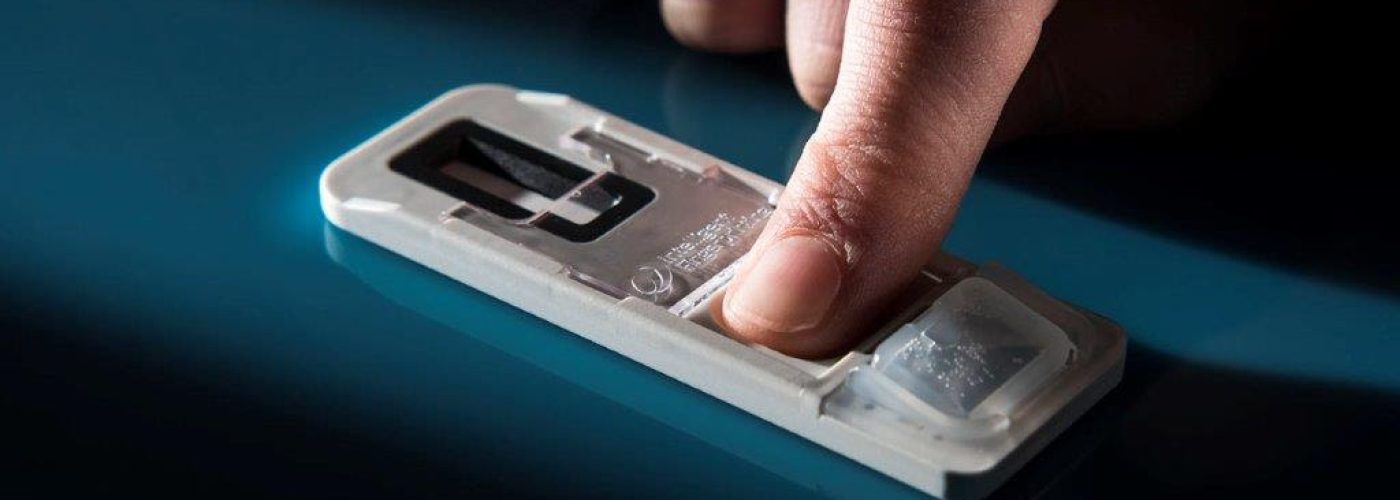Part of the Wilco Group, the largest civil and landscape development group in Western Canada, has adopted the Intelligent Fingerprinting Drug Test to use in its recruitment process. The HR team at Wilco Contractors Southwest Inc’s headquarters in Calgary is using the fingerprint-based drug screening system, that works by collecting and analysing tiny traces of sweat from a fingerprint to detect drugs, to assess fitness for works in the construction sector.
The rapid, non-invasive fingerprint method replaces a traditional off-site urine test approach. Together with operational and efficiency savings resulting from Intelligent Fingerprinting’s 10-minute test, the switch to the fingerprint method is set to save Wilco Southwest $20-25,000 CAD annually.
As part of Wilco Southwest’s commitment to workforce health and safety, all new employees who are set to operate construction heavy plant vehicles, truck operators or labourers who are working in these environments are required to take a drug test as part of their interview process. Previously, candidates were asked to visit a third party off-site location within 48 hours of the interview to provide a urine sample.
Dan Maat, Vice President of Wilco Contractors Southwest Inc said: “We recruit up to 500 new employees annually who work in quite high risk environments, so we want to ensure from the outset that our employees are safe and fit to work. As part of this, we routinely drug test as part of our recruitment process. We were attracted to the fingerprint method as we can now test in-house, and gain access to results within minutes during the interview process. We’ve also found that interviewees are much happier to provide a fingerprint sweat sample compared to our previous intrusive urine test approach. From a process and operational perspective, we have also projected that the adoption of fingerprint drug testing is set to save us between $20-25,000 CAD in the first year alone.
“This saving is not only due to the cost-effectiveness of the fingerprint method, but also thanks to savings from optimising our recruitment process and increasing the percentage of candidates offered a position who accept our employment. Previously we found that we lost candidates and money due to the urine test taking 24-48 hours post-interview. We were having to pay for many booked appointments where the candidate failed to turn up – either where the candidate was put off by the urine test or, in that one to two day period, they were offered alternative positions. Our HR manager is now managing the drug tests himself during the interview process – eliminating the need for an external party and enabling job offers to be made there and then,” added Dan Maat.
Intelligent Fingerprinting’s Dr Paul Yates added: “Drug testing clearly has a valuable role to play in recruitment, particularly as tackling drug misuse is so important in maintaining a safe workplace. Because fingerprint drug testing is quick and easy to use – unlike traditional urine or saliva-based tests that can be invasive, time-consuming and undignified for both testers and employees alike – our approach is certainly attracting attention from construction businesses – both in North America with Wilco and in Europe with organisations such as Alandale Group. And because our portable drug screening system supports all forms of employee drug testing – from pre-employment screens and random drug tests to post-accident investigations – construction firms are finding that fingerprint-based drug tests provide a cost-effective and practical way of supporting their health and safety initiatives and enabling drug misuse policies.”
Fingerprint-based drug testing – how it works
Intelligent Fingerprinting’s drug testing solution features a small, tamper-evident drug screening cartridge onto which ten fingerprint sweat samples are collected, in a process which takes less than a minute. The Intelligent Fingerprinting portable analysis unit then reads the cartridge and provides a positive or negative result on-screen for all drugs in the test in ten minutes.





